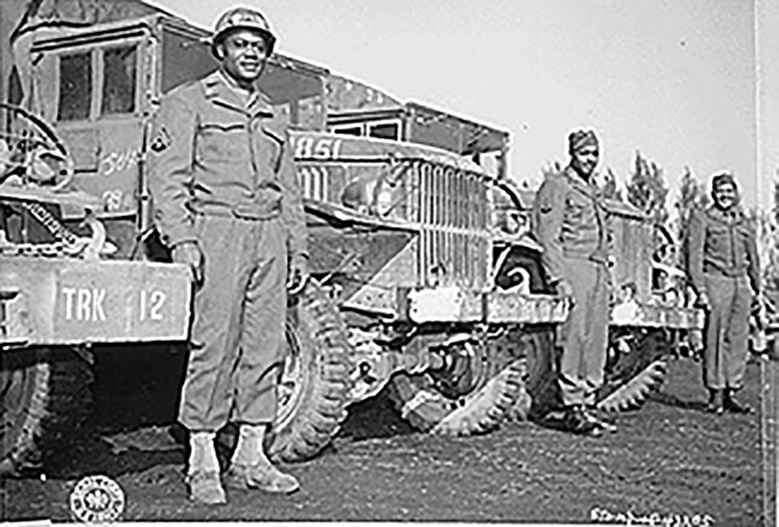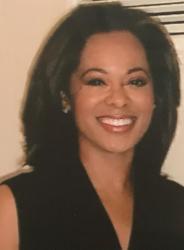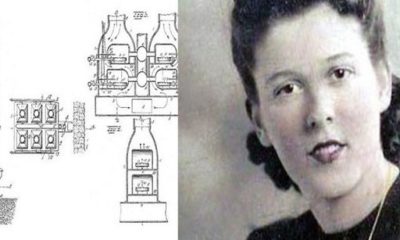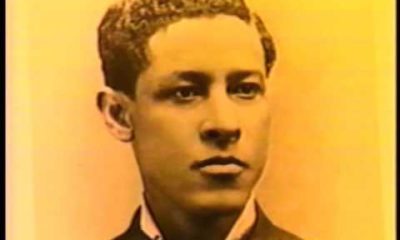Featured
A Family of Soldiers Honors the One Who Fought on Two Fronts

When it comes to protecting and defending America, an Atlanta family has more than earned their stripes. They credit their father with providing an example of leadership at a time when African Americans were just being allowed in the military. And, on Veterans Day, their memories of him are especially touching.
“I remember when I was younger, I didn’t think much of it, even though my dad took it like it was Christmas or something…but, as you get older, you understand more,” says Melanie Coley, a daughter.
Douglas Coley served in the Army during World War II. A native of Georgia, Coley knew his way around a boxing ring. He laced up his gloves and helped produce one of the greatest boxers of all time, Joe Louis. Coley became Louis’s sparring partner.
Coley’s oldest son, Waajid Bashir, says, “Joe Louis made it to the big time while my father was trying to make it to the big time.”
But while the aspiring boxer fell short on that front, he fought for his country and passed along a legacy of service to his children.
Generational Service
Bashir spent over 30 years in the military, seven years active duty and 25 in the National Guard. Douglas Coley, Jr. retired after 20 years, and his son is in the Coast Guard. Another brother, Anthony, also enlisted. And, Bashir’s wife, Joan Wright, enlisted as a young single mother and rose through the ranks to become a Lieutenant Colonel. One of his children, Aeisha, joined and was medically discharged.
“I think of all the people who sacrificed their lives for this country…a lot of people have lost their lives, and I give thanks for them and their families,” says Coley, Jr.
African American soldiers who fought in World War II like Douglas Coley, Sr. Coley often experienced racism once they returned home. The Equal Justice Initiative, founded by Brian Stephenson who also built the recently opened Lynching Memorial in Montgomery, released a report detailing the injustice visited upon veterans. The report states “no one was more at risk of experiencing violence and targeted racial terror than black veterans.”
In an interview with The New Yorker Stevenson said, “We do so much in this country to celebrate and honor folks who risk their lives on the battlefield. But we don’t remember that black veterans were more likely to attacked for their service than honored for it.”
The sons entered the military without any illusions about its history, but they also saw opportunity.
“When I went in, they put as a cook, Bashir remembers. “When they did that, I said, ‘Shoot, I don’t want to be a cook.’ I retook the test, and my score was high enough for me to become part of the military police. That’s all I’ve been doing all my life is policing.”
Wright’s career is a testament to some of the changes in the Armed Services. She remembers the days there were few women in leadership roles.
“The military has always been a leader in things that society adopts later on,” she states. “I remember pictures of my uncle when he served in Panama, and back then, Blacks were not traditionally in the military, and you didn’t see them as officers or leaders…they were soldiers, infantry. And, we’ve come a long way. Once Blacks were totally incorporated…the next natural thing was women. Now, you see a lot of women holding leadership roles, and it’s not unheard of anymore.”
Wright, her husband, and brother-in-law share their recollections with pride. They are no longer active in the military, but they are still Americans, and as African Americans, they also know the nation’s history of inequality can diminish their contribution.
“My parents always said it was about doing the right thing,” explains Wright. “People marched and were hung, but they still believed in the future for the rest of us.”
“It’s just like my daddy told me, ‘What the hell is going on? You don’t look like a Staff Sergeant,’” Coley, Jr. remembers. “He was surprised because I did it in five years. I look at what he went through and they went through so much. My son is in the Coast Guard, and sometimes he’s the only black guy in an all-white unit. I say, ‘Son, you’re a smart black man, and you’ve got to show them you’re good as they are.’”
Unity Forged Through Uniform
But these veterans are also quick to point to a sense of unity in the military that they think seldom finds its way into civilian life.
“We have friends from the military who are just as close as family because you have shared experiences,” Wright asserts. “You spend holidays, this one kept your kid when you were sick, this person helped you fix your car…it’s not like that in civilian life.”
And, Coley, Jr. cites the military’s rigid adherence to rules and regulations as an equalizer.
He says, “If you know the rules and regulations of certain aspects and you throw it back at them, they have no recourse but to honor what’s in the book.”
The United States Armed Forces has made great progress since the young man from Georgia who wanted to box enlisted in the early 1940s. Much of the hardship he and thousands of other young African American men endured abroad and when they returned stateside paved the way for his sons, daughter-in-law, and grandchildren to enjoy more opportunities while also protecting and defending country and family.

-

 Featured10 months ago
Featured10 months agoCalifornia Is the First State to Create A Public Alert for Missing Black Youth
-

 Featured9 months ago
Featured9 months agoAfrican American Leaders Stay the Course Amid Calls for President Biden To Bow Out of Race
-

 Featured10 months ago
Featured10 months agoThe Debate Fallout Lands on Both Candidates
-

 Featured9 months ago
Featured9 months agoPresident Joe Biden Decides to Withdraw from the Presidential Race
-

 Featured9 months ago
Featured9 months agoIn One of His Final Speeches as President, Biden Says It’s Time for ‘Fresh Voices’
-

 Featured9 months ago
Featured9 months agoPresident Joe Biden Describes Shooting of Donald Trump As ‘Sick’









